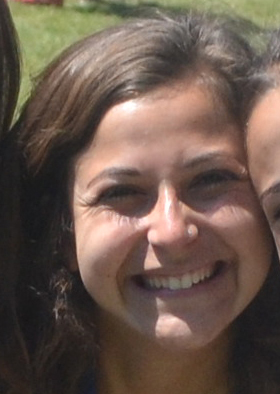Please enjoy a d’var Torah this week from Rosh Nivonim 2018 Daniella Elyashar. Daniella studies Education, History of Israel and Contemporary Judaism at Hebrew University in Jerusalem. She spent five summers at camp as a member of the Mishlachat.
Action vs. Inaction: Reflections on Parashat Vayishlach
by Daniella Elyashar
Two stories caught my eye in this week’s parashah, Vayishlach. The first is the lead-up to Jacob and Esau’s historic meeting after having not seen each other for many years. The last time they saw each other was not pleasant – to say the least – as Jacob stole their father, Isaac’s, blessing from Esau and left him feeling cheated and betrayed.
Fearing Esau’s still simmering rage as he prepares for the meeting, Jacob takes different steps of action. He trains his people for war, prays for God’s help and, in an attempt to prevent violence, sends his brother gifts. Jacob feels anxious for Esau’s arrival; the text describes him as
וַיִּירָא יַעֲקֹב מְאֹד, וַיֵּצֶר לוֹ
very afraid and distressed (Genesis 32.8).
What is the difference between fear and distress in this situation?
Rashi interprets this word choice in the following way: “Jacob was very afraid – lest he be killed. He was distressed – lest he kill.” In other words, Rashi argues that Jacob’s “fear” was physical – he feared for his life. This contrasts with the feeling of “distress” – which highlights the moral fear lest he be forced to kill his brother. Jacob was fully aware that this meeting had the potential to become a heated conflict or even evolve into a war between brothers. He actively tries to overcome his fear and distress both by protecting himself physically and by praying to God that he won’t need to face the moral dilemma of killing or being killed by his brother. His activity is described by many uses of active verbs in the beginning of Chapter 33 of Genesis such as “sends … orders … talks … prays…”
The second event that caught my eye in this parashah was the terrible story of Dina, Jacob’s daughter, who was raped and abducted by a local prince, Shechem, who demanded to keep her as his wife.
Jacob hears about these occurrences but doesn’t do anything. However, Shimon and Levi, Dina’s brothers, immediately realize that they must act to rescue her. They agree to let Dina marry the prince on the condition that all the members of Shechem’s town be circumcised. The people of Shechem agree and, days later, recuperating post-procedure, Shimon and Levi enter the town, kill the entire male population and rescue Dina, bringing her home. The other brothers then plunder the town.
Jacob is horrified after hearing about this radical violent revenge. “You have made me odious to the people of the land,” he says. His sons respond by asking Jacob what else they could have done. With that rhetorical question, the episode ends, and the narrative moves on.
In this story, unlike the previous one, Jacob does not take any active measures to protect or punish Shechem. This passivity is shown both by Jacob’s lack of presence and the overplay of violence towards a whole population by Shimon and Levi.
These are two heated conflicts with two completely different outcomes. In my mind, these outcomes were dictated by Jacob’s action and lack of action. Clearly, awareness, action and presence can prevent conflict and injustice. Comparing these two stories sheds light on the positive impact we can all have on any given situation by seizing agency and not becoming a passive bystander to whom things occur.
This week, as many Jews sit around the table with their families thinking about what they are thankful for, we should all strive to think of how our awareness and proactivity can help us prevent injustice and improve the world.






